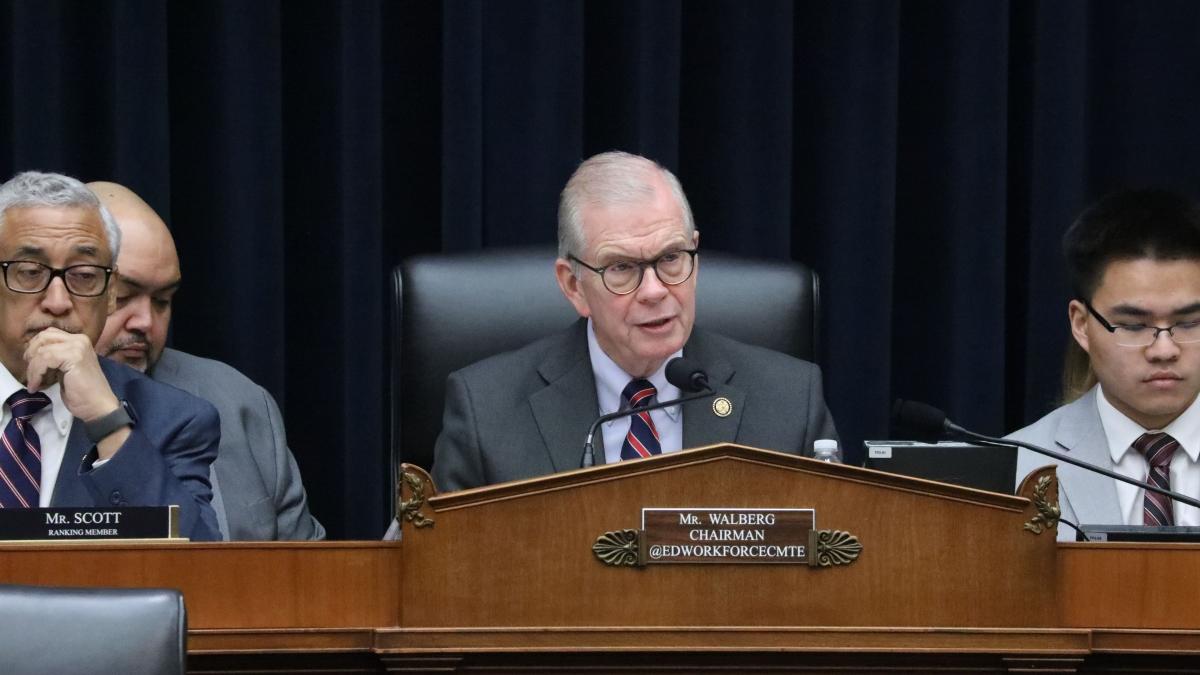JNS: House ed panel demands Columbia answer for its president seeming to mock Jew-hatred on campus

Reps. Elise Stefanik (R-N.Y.) and Tim Walberg (R-Mich.) demanded answers from Claire Shipman, Columbia University’s acting president, over communications suggesting that she dismissed concerns about antisemitism at the Ivy League school.
Stefanik, chair of the House Republican leadership, and Walberg, chair of the House Committee on Education and Workforce, asked Shipman on Tuesday about texts and emails that Columbia turned over to the committee as part of the latter’s investigation of the school.
“The committee is therefore seeking clarity regarding several messages you sent that appear to downplay and even mock the pervasive culture of antisemitism on Columbia’s campus,” the pair of lawmakers wrote.
“Obtaining clarity on these statements will aid the committee in considering whether potential legislative changes, including legislation that specifically creates further accountability for campus leaders, are needed,” they stated.
In October 2023, Shipman wrote to Minouche Shafik, then Columbia’s president, that “people are really frustrated and scared about antisemitism on our campus and they feel somehow betrayed by it, which is not necessarily a rational feeling, but it’s deep and it is quite threatening.”
“Your description—that people feel ‘somehow’ betrayed and that this is ‘not necessarily a rational feeling,’ but that it is ‘threatening’—is perplexing considering the violence and harassment against Jewish and Israeli students already occurring on Columbia’s campus at the time,” Stefanik and Walberg wrote to Shipman.
Shipman also wrote messages in December 2023 describing the congressional investigations into Jew-hatred on college campuses as “Capitol Hill nonsense,” and calling for more campus events with Rashid Khalidi, an anti-Israel professor, even though such events “won’t be popular in some groups.”
“Columbia further promoting Rashid Khalidi, an individual who has consistently supported and excused terrorist violence, and served as spokesman for a designated terrorist group, would likely not have been ‘popular’ with most Jewish students, who felt and continue to feel fear and hostility on campus after the Oct. 7 attack,” the representatives wrote on Tuesday.
Khalidi, who is the Edward Said professor emeritus of modern Arab studies at Columbia, was frequently cited in media reports in the 1970s and 1980s as a spokesman for the Palestine Liberation Organization in Beirut.
Khalidi denies that he worked for the PLO, and the PLO is no longer a U.S.-designated terrorist organization.
Stefanik and Walberg also point to January 2024 messages from Shipman in which she sought to appoint “somebody from the Middle East or who is Arab” to Columbia’s board. She did so even as she sought to remove Shoshana Shendelman, who is Jewish and who the lawmakers describe as “one of the board’s most outspoken Jewish advocates” after Oct. 7, from the board.
A Columbia spokesperson told JNS that it provided the messages to the House committee in fall 2024, and the materials reflect conversations from more than a year ago.
“They are now being published out of context and reflect a particularly difficult moment in time for the university, when leaders across Columbia were intensely focused on addressing significant challenges,” the spokesperson told JNS.
“This work is ongoing, and to be clear: Columbia is deeply committed to combating antisemitism and working with the federal government on this very serious issue, including our ongoing discussions to reach an agreement with the joint task force to combat antisemitism,” the spokesperson said.
Shipman “has been vocally and visibly committed to eradicating antisemitism on campus,” the spokesperson added. “The work underway at the university to create a safe and welcoming environment for all community members makes that plain.”
The letter from Stefanik and Walberg is the latest indication that Republicans in Congress and the Trump administration continue to believe that Columbia has violated Title VI of the 1964 Civil Rights Act, despite the resignation of two of the university’s presidents and a freeze on $400 million in federal funds to the school since the investigation began.
The House education panel and the Trump administration’s Federal Task Force to Combat Antisemitism have opened investigations into, warned or taken action against dozens of universities in the wake of nationwide anti-Israel campus protests.
Columbia has been a particular focus of those investigations after students and professors at the school mounted tent-encampment protests in April 2024 that were copied around the country.
The administration has made efforts to strip the university of its accreditation. On Monday, the Middle States Commission on Higher Education, which accredits Columbia, wrote to Shipman that while the university remains accredited, that accreditation “may be in jeopardy,” the Columbia Spectatorreported.
Stefanik and Walberg concluded their letter with a series of questions asking for more information about the messages from Shipman.
“The information gathered will also aid the committee in considering whether potential legislative changes, including legislation to specifically address antisemitic discrimination, are needed,” they added.